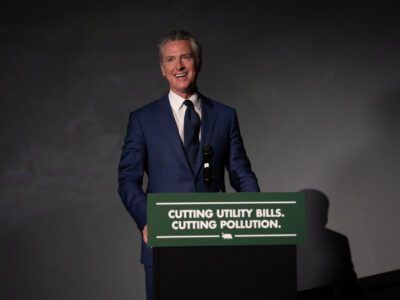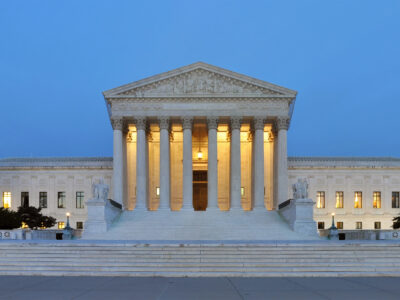Welcome to the Next Phase of the Great California-Trump Car Wars
First lawsuit filed, more to come
California didn’t wait long to file its first court challenge to the rules just finalized by the Trump Administration related to California’s GHG and ZEV car emissions standards (discussed here and here by Julia and Ann). Here’s the complaint filed by California together with 23 other states, along with the cities of LA and NY. There’s lots to say, but on quick reading here are some notable elements:
- It’s not a challenge to the administration’s decision to revoke California’s Clean Air Act waiver per se. (That’s still to come, I’m sure.) Instead, it’s a more limited challenge to one of the Administration’s underlying rationales for revoking the waiver. California is challenging the determination just finalized by the National Highway Traffic Safety Administration (NHTSA) that California’s GHG and ZEV emissions standards are preempted by federal law, namely, by the Energy Policy and Conservation Act, which governs federal fuel economy standards. The Trump Administration has concluded that California’s emissions standards are inconsistent with federal fuel economy standards and therefore cannot stand, and NHTSA issued a regulation to this effect. It’s that NHTSA regulation, and only that regulation, that’s being challenged–so far.
- For this reason, it has been filed as an ordinary district court case, not directly in the circuit courts, as (I believe) a direct attack on a Clean Air Act waiver revocation would have to be. Clean Air Act procedure mavens can chime in here. Moreover, the case was filed in a district court in D.C., not in California. Curious what civil procedure wonks think about whether it could have been filed in California instead, given the effects of the regulation in California (and, if so, why plaintiffs chose D.C.).
- The plaintiffs make interesting arguments in attacking NHTSA’s regulation, some easily anticipated, others less so.
- Substantively, they point out that two lower federal courts have already squarely considered and rejected this preemption argument on its merits, and that the US Supreme Court has held (admittedly in a different context) that Congress intended EPCA’s fuel economy standards to live happily alongside air quality emissions standards, no inconsistencies necessary. They also note that NHTSA has failed to justify its reversal of very longstanding Administration policy embracing California’s standards. They point out, for example, that California has had state ZEV standards in place for nearly thirty years, and that neither Congress nor any other Administration has ever suggested that those standards are unlawful under EPCA–until now. Reversing longstanding administrative positions requires greater-than-normal legal and factual justification, and the states argue that NHTSA’s rationale for its change of heart doesn’t meet that bar.
- Procedurally, the plaintiffs argue that “preemption regulations” aren’t really a thing under EPCA, therefore NHTSA doesn’t have the power to issue this regulation to begin with. Even if NHTSA has this power, the states argue, it screwed up its process by failing to consult with states as necessary under federal law, and by failing to conduct any environmental review under the National Environmental Policy Act (NEPA). I like the NEPA claim because it showcases how strange a move the agency made by issuing a preemption determination via regulation. Regulations that have the effect of negating core air quality regulations throughout much of the country, as this one would, certainly have significant environmental effects and thus must be analyzed under NEPA, according to the complaint.
- From a shamelessly parochial UCLA Law perspective, I’ll note that the complaint has our alumni fingerprints all over it. The main signatory is Jonathan Wiener, a UCLA Law grad at the California AG’s office, and signing for Massachusetts is our former beloved Emmett Institute fellow (and Legal Planet blogger) Megan Herzog.
There’s lots more litigation to come, but one key question hovers above it all: Will any of this reach the Supreme Court before a change in the White House brings a change in administrative direction? We’ll see.







Reader Comments